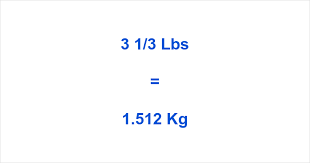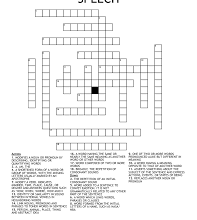What to look for in 3 pounds to kg

Are 3 pounds to kg you often left scratching your head when trying to convert pounds to kilograms? You’re not alone! Understanding this conversion is crucial, whether you’re a fitness enthusiast tracking your weight or a baker measuring ingredients. Let’s delve into what to look for in 3 pounds to kg and make this seemingly complex calculation a piece of cake!
Understanding the Conversion: Pounds to Kilograms
When it comes to converting pounds to kilograms, it’s essential to grasp the relationship between these two units of measurement. In simple terms, a pound is equivalent to approximately 0.45 kilograms. This means that when you convert pounds to kilograms, you are essentially dividing the weight in pounds by 2.2.
Understanding this conversion is beneficial for various reasons. Whether you’re following a recipe with metric measurements or monitoring your weight loss progress in kilograms, knowing how to convert between pounds and kilograms can be incredibly handy.
By familiarizing yourself with this conversion factor and practicing a few calculations, you’ll soon become more comfortable with converting weights from pounds to kilograms effortlessly. It’s all about getting the hang of the math behind it and applying it whenever needed in your daily life or activities.
Why is this Conversion Important?
Understanding the importance of converting pounds to kilograms is crucial in today’s globalized world. With international trade, travel, and communication becoming increasingly prevalent, having a grasp on different units of measurement is essential for everyday tasks.
Whether you’re traveling abroad and need to understand weight limits for luggage or shipping packages internationally, knowing how to convert between pounds and kilograms can save you time and hassle. It allows for seamless communication across borders, preventing misunderstandings that could arise from using different measurement systems.
Moreover, in fields like science, healthcare, and fitness where precise measurements are critical, being able to convert between these units accurately is indispensable. From calculating medication dosages to monitoring body weight changes during exercise programs – the ability to convert pounds to kilograms opens up a world of possibilities.
In essence, mastering this conversion not only streamlines daily activities but also enhances your overall efficiency in various aspects of life.
Factors to Consider When Converting Pounds to Kilograms
When converting pounds to kilograms, it’s essential to consider the accuracy of the conversion factor you’re using. Factors like rounding errors or outdated conversion rates can lead to inaccurate results. It’s crucial to ensure that you have the most up-to-date and precise information available.
Another factor to keep in mind is the context in which the conversion is being used. Different industries may require different levels of precision when converting between pounds and kilograms. Understanding the specific requirements of your situation can help you make more informed decisions during the conversion process.
Additionally, it’s important to double-check your calculations and be mindful of any potential mistakes along the way. Simple errors like misplaced decimal points or incorrect multiplication can easily throw off your conversions. Taking extra care in verifying each step can prevent inaccuracies from creeping into your final results.
By considering these factors when converting pounds to kilograms, you can ensure that your calculations are as accurate and reliable as possible for whatever purpose they may serve.
Common Mistakes to Avoid When Converting Pounds to Kilograms
When converting pounds to kilograms, one common mistake is forgetting the conversion factor of 2.20462. It’s crucial to multiply the number of pounds by this factor accurately for a correct conversion result.
Another mistake to avoid is rounding off too early in the calculation process. Always wait until the final step to round off your answer to ensure precision in the conversion.
Using an incorrect formula can lead to errors in converting pounds to kilograms. Make sure you’re following the right equation (1 pound = 0.453592 kilograms) for accurate results.
Neglecting units during calculations can also cause mistakes. Always keep track of whether you’re working with pounds or kilograms throughout the conversion process.
Not double-checking your work before finalizing the converted value can result in inaccuracies. Take a moment to review your calculations and ensure they align with the correct conversions for pounds to kilograms.
Tools and Resources for Accurate Conversions
When it comes to converting pounds to kilograms accurately, having the right tools and resources at your disposal can make a significant difference. One of the most convenient ways to perform this conversion is by using online converters or mobile apps specifically designed for quick and precise calculations.
These digital tools not only save time but also eliminate the risk of human error that may occur when calculating conversions manually. Additionally, there are websites with built-in conversion tables that provide a quick reference guide for common weight measurements, making the process even more straightforward.
For those who prefer a hands-on approach, physical conversion charts or pocket-sized reference cards can be handy resources to have on hand. These tangible tools allow for quick conversions without relying on electronic devices or an internet connection.
By utilizing these various tools and resources available, you can 3 pounds to kg ensure accurate pound to kilogram conversions in any situation – whether you’re at home, in the 3 pounds to kg grocery store, or traveling abroad.
Practical Applications of the Pounds to Kilograms Conversion
When it comes to practical applications of the pounds to kilograms conversion, understanding this basic metric conversion can be incredibly useful in various everyday scenarios. One common application is when you’re traveling or shopping abroad and need to 3 pounds to kg quickly estimate weights in a different measurement system.
For example, if you’re at a market in Europe and see produce being sold by the kilogram but are used to thinking in pounds, knowing how to convert between the two can help you make informed purchasing decisions without any confusion. Similarly, for those 3 pounds to kg who follow certain dietary plans that require tracking food intake by weight, being able to convert between pounds and kilograms accurately can be crucial.
Moreover, professions like fitness trainers or nutritionists often work with clients who track their weight loss or muscle gain progress in kilograms. Understanding this conversion allows them to effectively communicate goals and progress with their clients using a universal measurement system.
Conclusion
Understanding how to convert from pounds to kilograms is a valuable skill that can be useful in various situations. By considering the factors mentioned above and avoiding common mistakes, you can ensure accurate conversions. Utilizing tools and resources available online can also help simplify the process. Whether you’re planning a trip abroad or following a recipe with metric measurements, knowing how to convert between pounds and kilograms will come in handy. So, keep these tips in mind for your future conversion needs!




